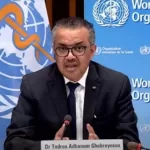Indian Space Research Organisation (ISRO) chief, S. Somanath, disclosed his recent struggle with stomach cancer, shedding light on the challenges of diagnosing and treating this often elusive disease. Doctors caution against overlooking subtle symptoms, urging proactive measures for early detection and prevention.
S. Somanath, the esteemed leader of ISRO, shared his health journey in a candid interview with Tarmak Media House, revealing that health issues surfaced during the Chandrayaan-3 mission launch in August last year. However, it wasn’t until preparations for the Aditya-L1 mission in September that stomach cancer was diagnosed.
“There were some health issues during the Chandrayaan-3 mission launch. However, it was not clear to me at the time, I did not have a clear understanding about it,” Somanath confessed, indicating the ambiguous nature of stomach cancer symptoms. He underwent surgery followed by chemotherapy and has since resumed his duties, declaring himself “completely cured.”
Stomach cancer, the fifth-most common cancer among males, presents vague and sometimes misleading symptoms, according to medical experts. Dr. Vinay Samuel Gaikwad, Director of Surgical Oncology at CK Birla Hospital, Gurugram, highlighted the challenge of identifying symptoms, which may include abdominal pain, unexplained weight loss, loss of appetite, difficulty swallowing, nausea, vomiting, and blood in the stool.
“Symptoms can be very vague and sometimes misleading. The feeling of acidity and abdominal pain is very common and taken lightly until the disease has progressed substantially,” Dr. Gaikwad cautioned.
Prognosis for stomach cancer varies widely based on the stage at diagnosis. Early detection is crucial, yet the disease is often diagnosed in later stages, contributing to higher mortality rates. Dr. Puneet Dhar, Head of Department of Gastrointestinal Surgery at Amrita Hospital, Faridabad, emphasized the importance of regular screenings, particularly for high-risk individuals.
“Stomach cancer predominantly affects individuals after the age of 50 years, with the average age at diagnosis being around 60,” noted Dr. Dhar. Lifestyle factors such as smoking, alcohol consumption, and dietary habits, particularly a preference for spicy and preserved foods, increase the risk.
Moreover, stomach cancers tend to have aggressive tumor biology, spreading rapidly and increasing the likelihood of recurrence after treatment. Dr. Gaikwad emphasized the urgency of initiating treatment promptly due to the fast-growing nature of these tumors.
Preventive measures include adopting a balanced diet rich in fruits and vegetables, minimizing processed and preserved foods, quitting smoking, moderating alcohol intake, and scheduling regular medical check-ups, especially for individuals with a family history or concerning symptoms.
Somanath’s openness about his battle with stomach cancer serves as a reminder of the importance of health awareness and proactive healthcare practices in combating this challenging disease. As efforts continue to raise awareness and improve early detection, the hope remains for better outcomes and reduced mortality rates associated with stomach cancer.











